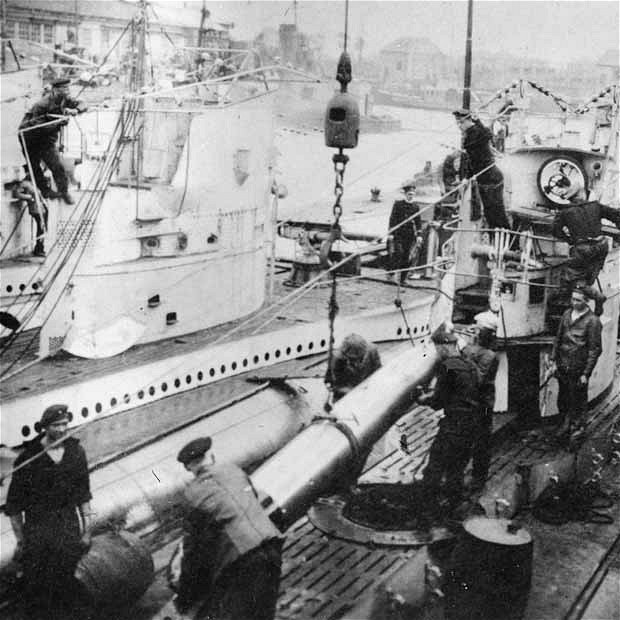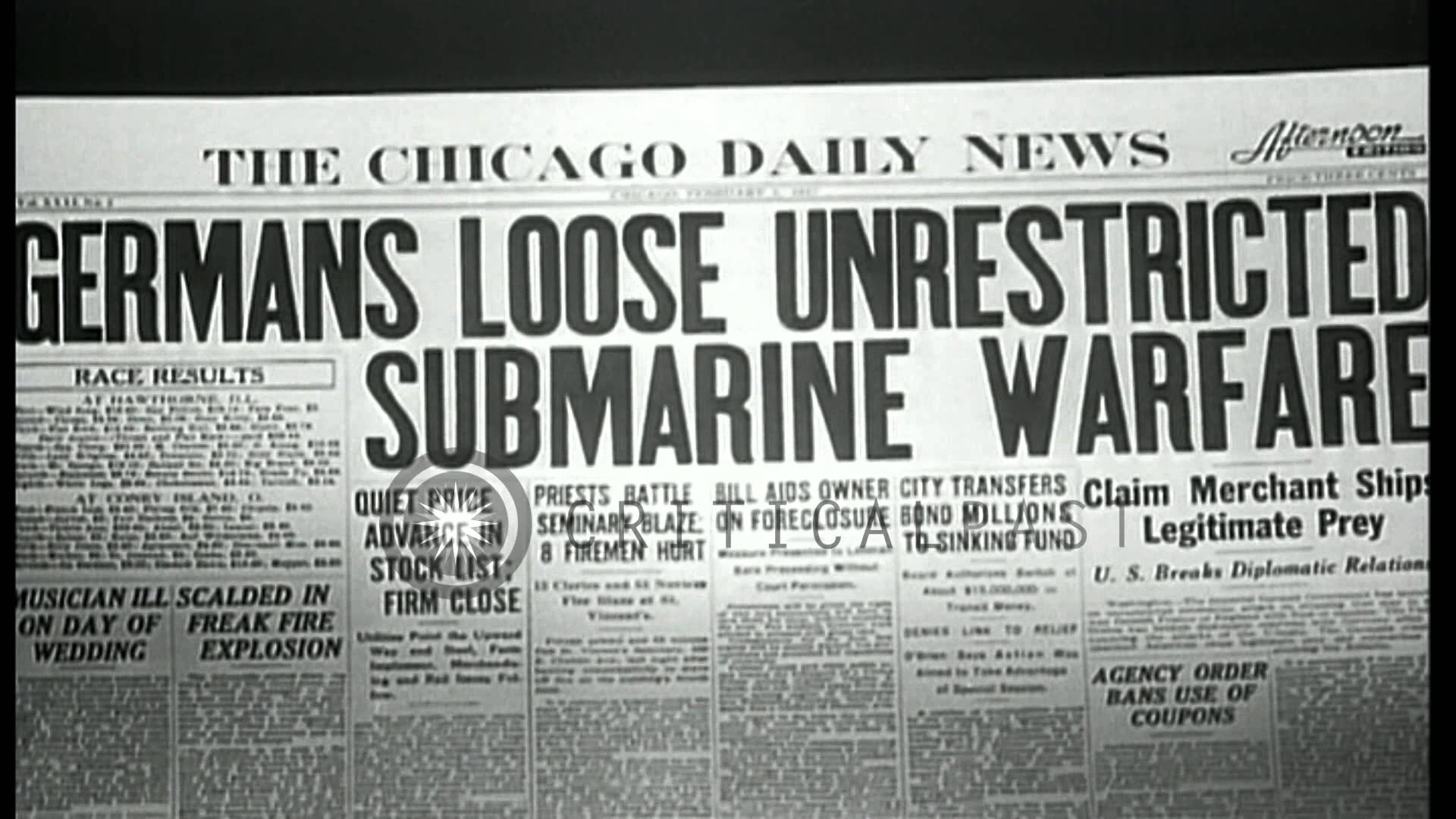Germany Returns to Unrestricted Submarine Warfare
Wilson Struggles with Policy of Neutrality
Will the U.S. Enter the War?
Special to The Great War Project
(26-30 March) Tension is growing in the United States over the German decision to return to unrestricted submarine warfare and the American response to it.
In the winter of 1916, the German command issues new rules for the operations of submarines. The German actions reflect just how preoccupied they are about the possibility that this will bring the United States into the war.

Loading torpedoes onto German U-boats, circa 1916.
Bluntly stated, Germany issues orders that “enemy merchantmen [ships] carrying guns should be regarded as warships and destroyed by all means. Commanders should not, however, forget that errors which they might commit could lead to a rupture with neutral powers (that is, the United States) and that one should destroy a ship on account of its armament only if he is absolutely certain of the existence of this armament.”
Later the Germans modify their rules of engagement.
Among the terms made public:
–“All enemy merchantmen must be destroyed unless the commander acquires the conviction that the ship encountered is not armed.”
–“Ships will not as a rule be visited [boarded] on account of the dangers which this practice carries.
–“After attacking submerged, the submarine will get away without revealing itself so that the nature of the attack (mine or torpedo) will remain not definitely known.”
–“Commanders will be protected in case they commit mistakes.”
President Woodrow Wilson and his advisers spend a great deal of time debating how American policy – and American actions — can keep the U.S. neutral and out of the war, all the while protecting American access to commerce on the high seas.
Ultimately, Wilson’s Secretary of State, Robert Lansing, issues a document that, among other provisions, acknowledges the rights of all the belligerents, including Germany, to carry out submarine attacks on clearly identified warships off the coast of Britain and its allies.

Germany returns to unrestricted submarine warfare, makes news in the US.
This policy enrages members of the American Congress, and threatens to rupture good relations with Britain.
Nevertheless, reports Wilson’s biographer Arthur Link, Wilson issues a statement that “this draft has my entire approval.”
Lansing elaborates, according to Link, that “the American government did not believe that a belligerent should be denied the right to use submarines against maritime commerce since they had obviously proved their usefulness.”
The Americans argue that all the belligerents should be forced to conform to generally held international laws of combat on the high seas. Their ships must be stopped and searched, the Americans assert, their passengers removed before the merchant ship is destroyed.
Despite the real problems carrying out this policy, the British especially are provoked by the American declaration. But they are loath to break relations with the U.S., which has supplied so many shipments of munitions, purchased in the United States with so many huge American bank loans.
At the same time, members of Congress also fear that Wilson’s current policy could lead to the U.S. entry into the war. Opposition in Congress comes from all sides.
But Wilson’s position carries the day. This, observes biographer Link, is Wilson’s “single most important pronouncement on American neutral rights and duties.”

The hand of the German U-boat lurks just under the surface.
But its numerous opponents from both sides of the isle in Congress are unconvinced. Critics dismiss Wilson and his policies, calling them variously “doctrinaire, unrealistic, deceptive, mendacious, or bent upon war with Germany.”
As for the possibility that this could drive the U.S. into the war, according to Link, “No one doubted it.”
